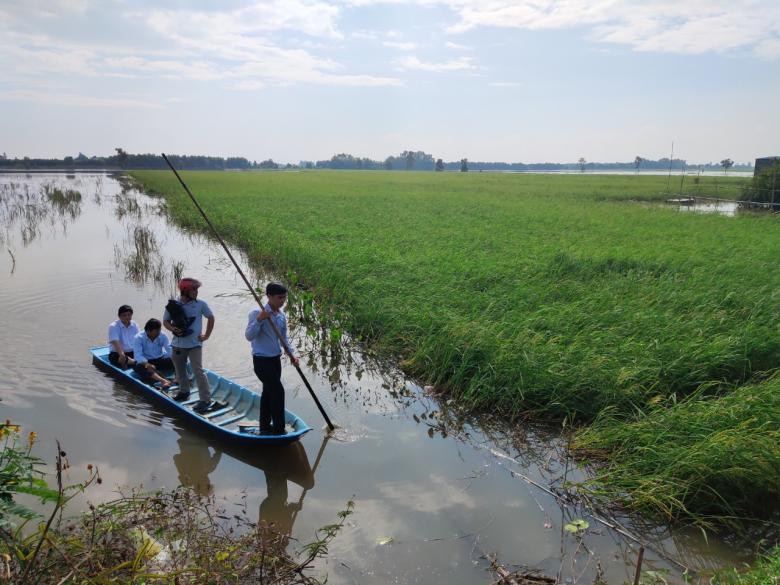
Flood-based agriculture in the Upper Mekong Delta
IUCN promoted and improved locally-practiced, flood-based (wetland) agriculture and livelihood models in the Vietnamese provinces of An Giang, Dong Thap and Long An. These practices were based on documented farmer knowledge and experience. Flood-based livelihoods were encouraged as a financially viable, low risk alternative to triple rice cropping (the dominant agricultural practice). They help enhance economic and climate resilience as well as conserve and restore the biodiversity found in Mekong Delta freshwater wetlands/floodplains. The intervention employed a Nature-based Solution and considered three systems – floating rice systems, lotus farming systems and rice aquaculture systems. In addition, due to increasing weather extremes, hybrid solutions were also explored (combination of dykes and floodplains). Hybrid models can better enable controlled flooding and adaptive approaches to overcome risks of drought and to manage the arrival and recession of floods to be more in tune with cropping needs.

